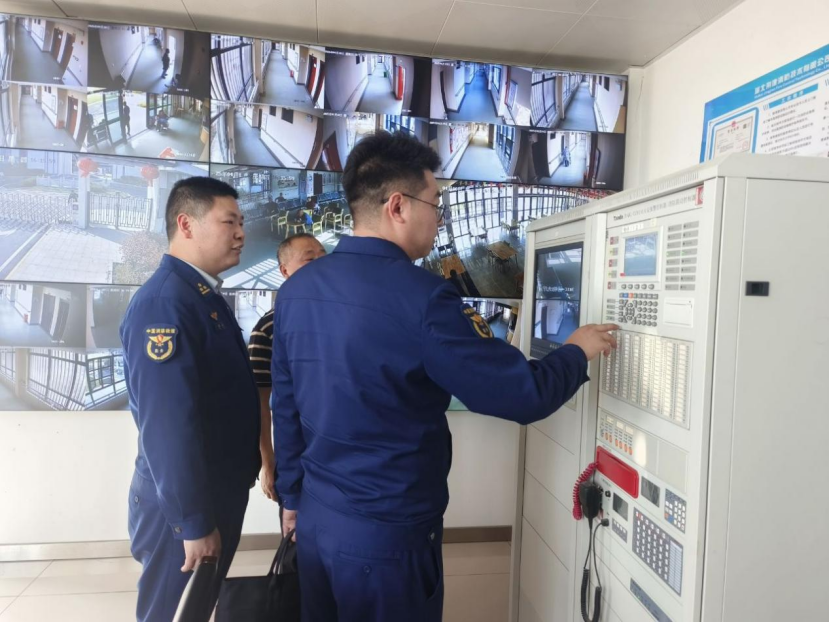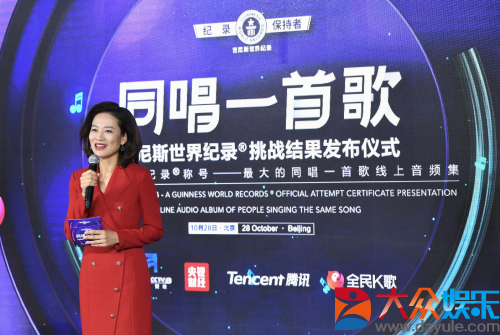US can't reverse re

Shi Yu/China Daily。
The world is watching closely as the United States and China engage in high-stakes bilateral trade negotiations. While the immediate outcomes may be modest tariff adjustments or managed market access in selected sectors, those can be best understood as tactical responses to deeper structural tensions rather than strategic breakthroughs. The broader implications for global trade lie not in the specifics of such negotiations but in the shifts they signify: away from multilateralism and US dollar hegemony, and toward a new, multipolar global trade architecture.。
At the heart of the current tensions is the US' growing anxiety over its relative decentering. Having enjoyed more than three decades of the unrivalled global hegemony since the end of the Cold War, the US now finds itself challenged by China's rising technological prowess, industrial scale and global integration. Under the Donald Trump administration, the US' anxiety has transformed into an explicitly transactional, bilateral trade posture.。
The US has been increasingly dismissing multilateral institutions — for long the instruments through which Washington shaped global norms and gained geopolitical advantage — in favor of "deal-making" with individual countries, and projected this bilateralism, steeped in zero-sum logic, as strength. By doing so, it has exposed its strategic incoherence.。
For example, through its trade policy, the US administration tried to simultaneously increase domestic manufacturing output — by penalizing imports — and maintain the dollar's status as the global reserve currency. These goals are not easily reconciled. A strong global reserve currency fuels persistent trade deficits. Penalizing imports through tariffs does disrupt this dynamic but not without costs. If the US were to genuinely reindustrialize at scale, it would need to import huge volumes of capital goods and intermediate inputs, exacerbating the very trade deficit it seeks to narrow. The paradox is that narrowing the trade deficit would first require widening it.。
The alternative is simply to reduce overall aggregate demand in the economy by slashing public expenditure. That doesn't look like happening.。
More fundamentally, the hollowing out of US manufacturing was never principally a result of trade agreements. It was a symptom of a deeper reorientation of US capital. Over the past four decades, US capital has been progressively reallocated from industrial production to financial engineering, creating asset bubbles, stock buybacks and speculative real estate investment. Wall Street flourished as "Main Street" faded. The share of GDP derived from financial services soared, while fixed capital formation in manufacturing stagnated. Reversing this trend would require reducing the political and institutional power of finance, an unpalatable proposition for any administration.。
Yet the US still manufactures products such as high-end equipment and advanced electronics, and develops or advances technologies like aerospace technology and military technology. But their production is capital-intensive, not labor-intensive, and they don't fill the physical or emotional void created by the offshoring of everyday consumer goods manufacturing that began in the 1970s. The sense of economic alienation among broad swathes of the American working class is as much cultural as it is economic. Tariffs may meet some symbolic need for control or retribution, but they cannot restore the industrial base to its past state.。
Also, the rest of the world is adapting to the US' contradictions. The weaponization of the dollar, through sanctions and arbitrary financial restrictions, has catalyzed a slow but deliberate move toward alternatives. Some emerging economies are accelerating trade settlements in their national currencies and exploring alternative clearing mechanisms. ASEAN member states, on the other hand, are reducing their reliance on the dollar in regional trade, particularly with China, Japan and the Republic of Korea.。
Even the oil-rich Gulf Cooperation Council member states are diversifying their trade currency strategies. The demand for the dollar as a trade settlement medium is gradually diminishing, which the European Central Bank sees as an opportunity for the euro to play a more prominent role in global trade. This fragmentation is not a retreat from but a reconfiguration of globalization.。
The new globalization that is emerging is multipolar in character, regional in structure and decentralized in operations. Institutions such as the World Trade Organization will likely persist, offering an overarching framework for administrative and policy guidance. But much of the practical work of trade governance — harmonization of standards, digital commerce rules and investment arbitration — will occur in regional and bilateral forums. In this regard, the US-China negotiations are not anomalous but emblematic.。
For many countries, especially in the Global South, the US' retreat from multilateralism poses risks but also creates new space. The growing importance of South-South trade, supported by new infrastructure financing and currency swap arrangements, is reducing the Global South's dependence on Western markets and institutions, with the Belt and Road Initiative creating corridors of trade and production that bypass traditional Western trade bottlenecks.。
The US remains a major consumer market, responsible for about 14 percent of global imports. But its share in the global economy is declining, reflecting both its waning economic clout and the diversification of global demand. For exporters, aligning with the new regional poles of growth — in East Asia, South Asia and parts of Africa — will become increasingly important. And supply chains will be restructured to hedge against geopolitical volatility, balancing proximity, cost and political risk.。
The Sino-US trade tango should not be seen as the primary determinant of the future of global trade. Rather, it is a mirror of the broader historical shift: from unipolarism to multipolarism, from dollar dominance to currency diversification, from multilateralism to mosaic regionalism. The world isn't de-globalizing; it is re-globalizing on new terms and under new rules.。
The author is an adviser to former Australian prime minister Kevin Rudd, adjunct professor at Queensland University of Technology and a senior research fellow at Taihe Institute.。
The views don't necessarily reflect those of China Daily.。
(责任编辑:探索)
-
 荆楚网湖北日报网)讯通讯员 张曼)4月10日,荆州区消防救援大队积极行动,组成3个查看小组到辖区各个养老场所,经过“查看+宣扬”左右开弓形式,为养老组织的消防安全保驾护航。在荆州区社会福利院,消防监督
...[详细]
荆楚网湖北日报网)讯通讯员 张曼)4月10日,荆州区消防救援大队积极行动,组成3个查看小组到辖区各个养老场所,经过“查看+宣扬”左右开弓形式,为养老组织的消防安全保驾护航。在荆州区社会福利院,消防监督
...[详细]
-
中国移动咪咕与金鸡百花电影节签署战略协作协议,带来5G年代电影节新体验
 我国移动咪咕与金鸡百花电影节签署战略协作协议,带来5G年代电影节新体会。2019-10-23 09:34:14 来历:群众文娱网 职责编辑: liyu
...[详细]
我国移动咪咕与金鸡百花电影节签署战略协作协议,带来5G年代电影节新体会。2019-10-23 09:34:14 来历:群众文娱网 职责编辑: liyu
...[详细]
-
 声而破界·逐电追风 雅尼2019北京音乐会恢宏表演。2019-11-11 11:17:47 来历:群众娱乐网 责任编辑: liyu。
...[详细]
声而破界·逐电追风 雅尼2019北京音乐会恢宏表演。2019-11-11 11:17:47 来历:群众娱乐网 责任编辑: liyu。
...[详细]
-
第七届中国国际音乐工业大会蓄势待发 音乐创造大赛及创造营重磅嘉宾来袭
 第七届中国国际音乐工业大会蓄势待发 音乐创造大赛及创造营重磅嘉宾来袭。2019-11-08 14:18:15 来历:群众娱乐网 责任编辑: liyu
...[详细]
第七届中国国际音乐工业大会蓄势待发 音乐创造大赛及创造营重磅嘉宾来袭。2019-11-08 14:18:15 来历:群众娱乐网 责任编辑: liyu
...[详细]
-
 阿塞拜疆总统阿利耶夫9日说,现在阿方正在与我国企业积极合作。阿利耶夫说,我国公司已被选为阿塞拜疆出产环保公共交通车辆的合作伙伴,估计本年开端出产第一批产品;我国公司仍是阿塞拜疆装置的太阳能电池板的供货
...[详细]
阿塞拜疆总统阿利耶夫9日说,现在阿方正在与我国企业积极合作。阿利耶夫说,我国公司已被选为阿塞拜疆出产环保公共交通车辆的合作伙伴,估计本年开端出产第一批产品;我国公司仍是阿塞拜疆装置的太阳能电池板的供货
...[详细]
-
 上海世界拳击峰会举行,邹市明打造新的世界拳王。2019-11-18 10:33:43 来历:群众文娱网 责任编辑: liyu。
...[详细]
上海世界拳击峰会举行,邹市明打造新的世界拳王。2019-11-18 10:33:43 来历:群众文娱网 责任编辑: liyu。
...[详细]
-
 为本乡文明工业助力加油,丁子峻受邀担任国影盛典颁奖嘉宾。 2019-11-26 10:32:13 来历:群众娱乐网 责任编辑: liyu。
...[详细]
为本乡文明工业助力加油,丁子峻受邀担任国影盛典颁奖嘉宾。 2019-11-26 10:32:13 来历:群众娱乐网 责任编辑: liyu。
...[详细]
-
 《吐槽大会4》甄子丹弄清“戏霸”传言 李诞吐槽大会回归首秀。2019-12-07 10:15:53 来历:群众娱乐网 责任编辑: liyu
...[详细]
《吐槽大会4》甄子丹弄清“戏霸”传言 李诞吐槽大会回归首秀。2019-12-07 10:15:53 来历:群众娱乐网 责任编辑: liyu
...[详细]
-
 现在,浙江现已开展成为全国野外运动工业集群规划最大、工业链最完好的区域之一,比方说,杭州富阳区被称为“我国赛艇之乡”,上下游工业链完好;宁波深甽镇被称为“我国运动杖之乡”,约占全球六成的市场份额。“野
...[详细]
现在,浙江现已开展成为全国野外运动工业集群规划最大、工业链最完好的区域之一,比方说,杭州富阳区被称为“我国赛艇之乡”,上下游工业链完好;宁波深甽镇被称为“我国运动杖之乡”,约占全球六成的市场份额。“野
...[详细]
-
“同唱一首歌”活动满意收官 新的吉尼斯世界纪录TM;称谓诞生
 “同唱一首歌”活动满意收官 新的吉尼斯世界纪录TM;称谓诞生。2019-10-29 13:27:18 来历:群众文娱网 责任编辑: liyu
...[详细]
“同唱一首歌”活动满意收官 新的吉尼斯世界纪录TM;称谓诞生。2019-10-29 13:27:18 来历:群众文娱网 责任编辑: liyu
...[详细]

 胡塞装备:美军空袭萨那致至少3人逝世
胡塞装备:美军空袭萨那致至少3人逝世 浪漫横滨购物新去处—— 三井奥特莱斯购物城 横滨港湾
浪漫横滨购物新去处—— 三井奥特莱斯购物城 横滨港湾 三筒七条《上山采茶》单曲上线
三筒七条《上山采茶》单曲上线 火箭少女101sunnee 杨芸晴获亚洲新歌榜十大金曲,助唱公益歌曲《一点点光》
火箭少女101sunnee 杨芸晴获亚洲新歌榜十大金曲,助唱公益歌曲《一点点光》 荆楚政法底层行丨随州:二十载“逢四说事” 在全国十多个省市推行
荆楚政法底层行丨随州:二十载“逢四说事” 在全国十多个省市推行
